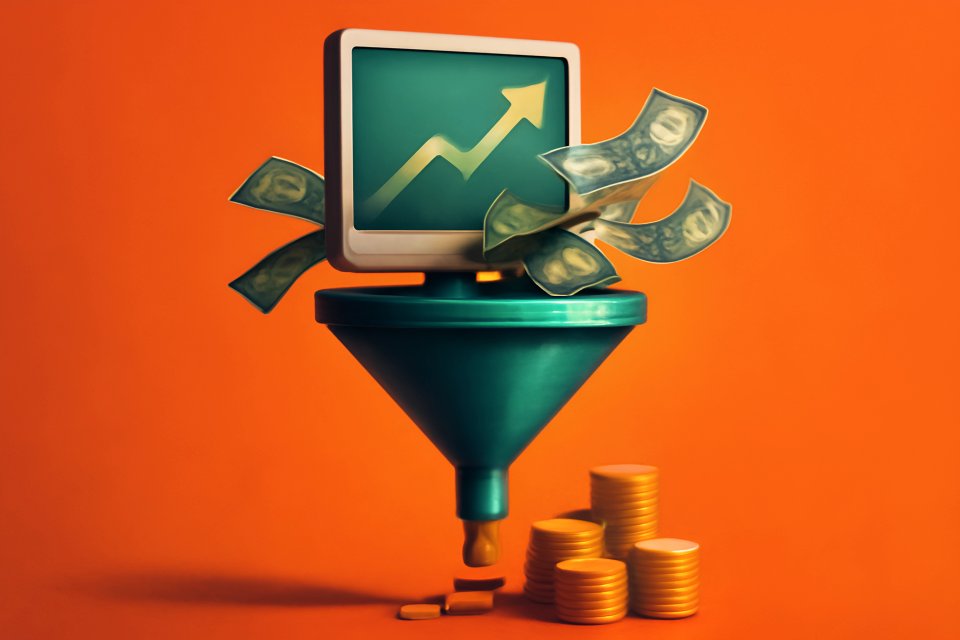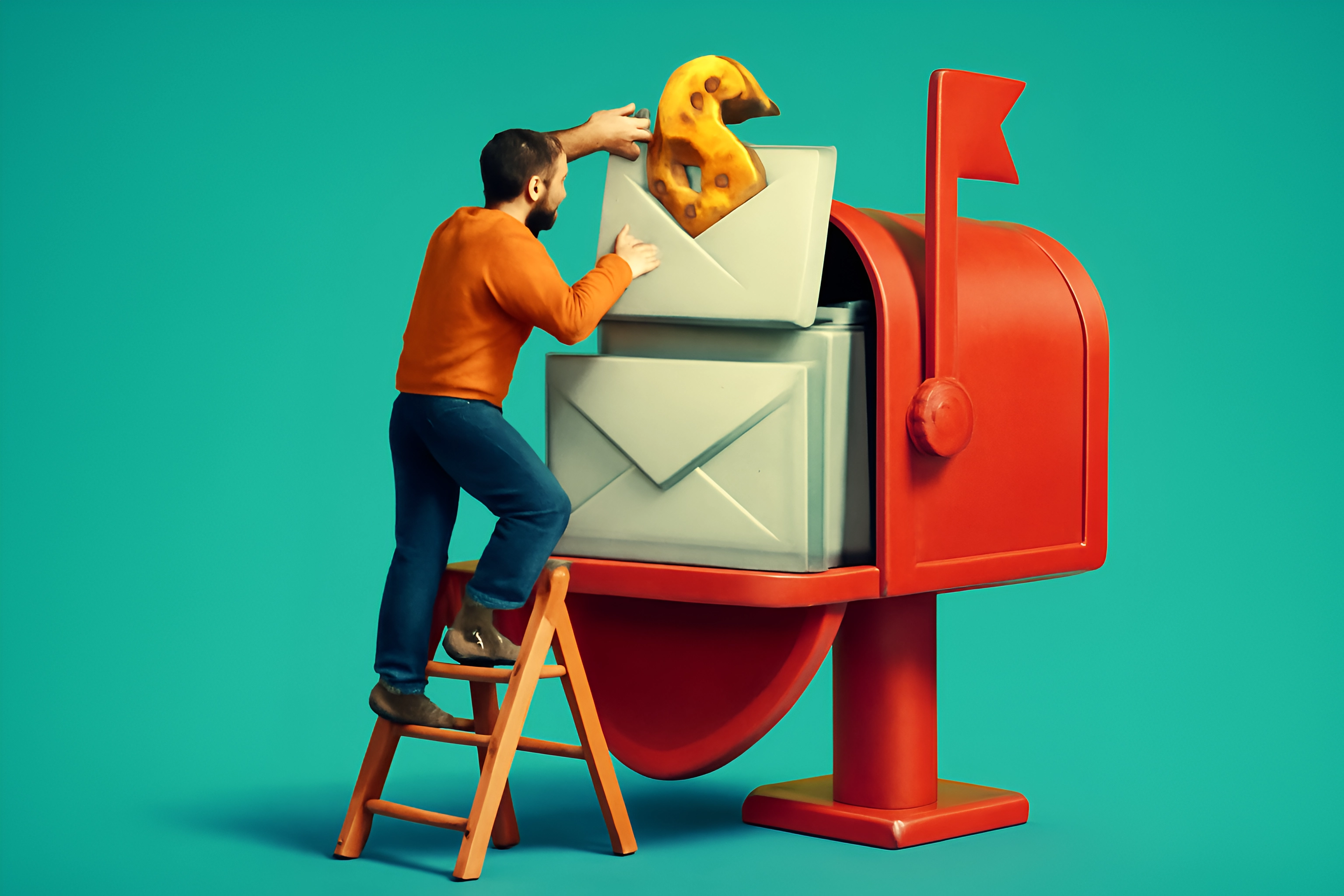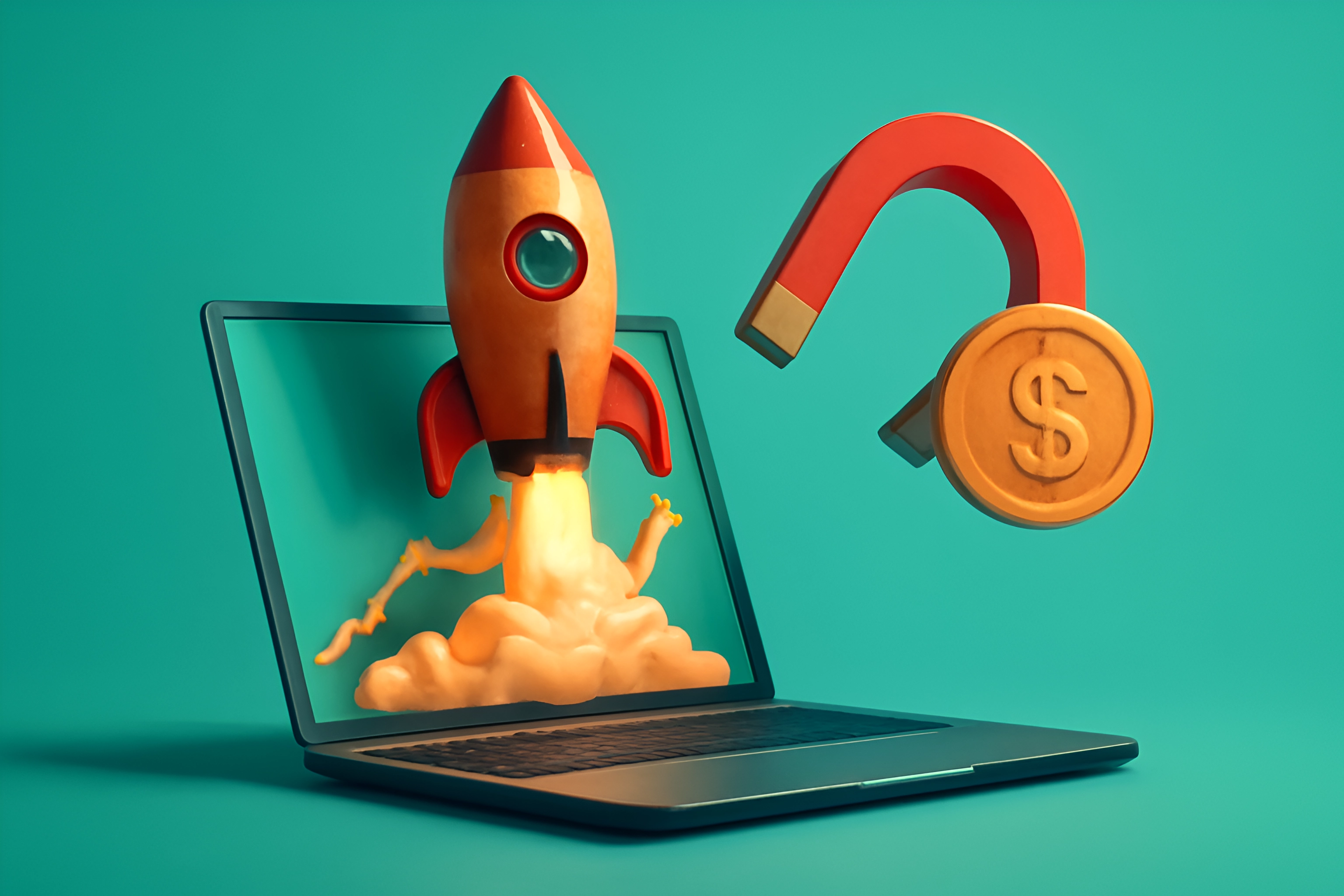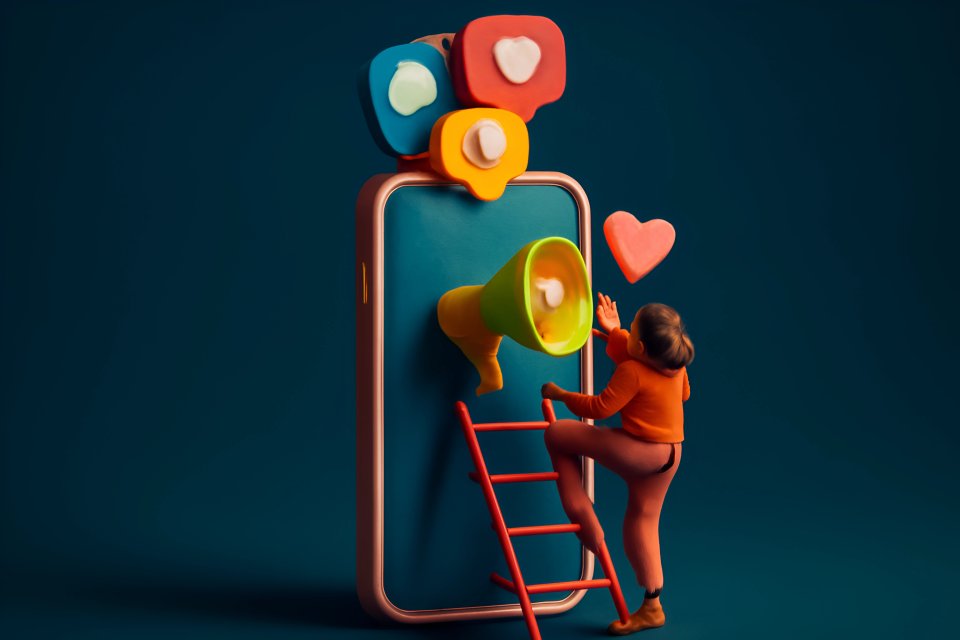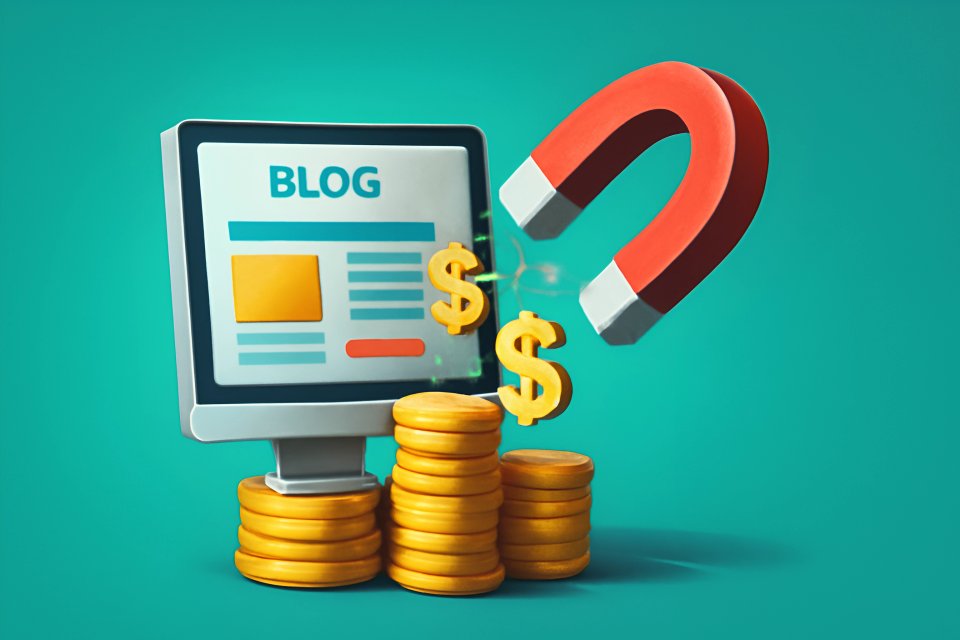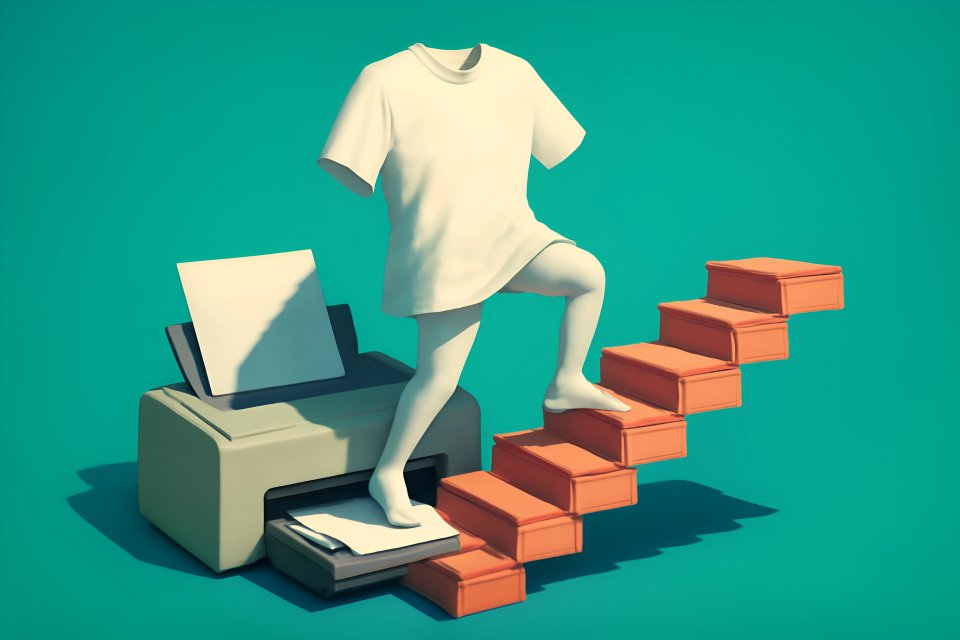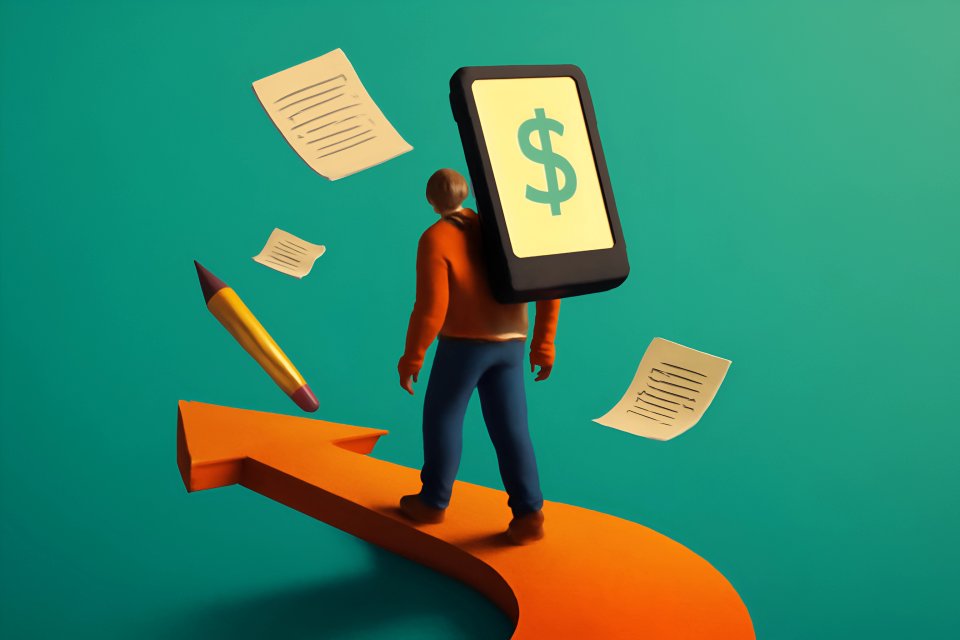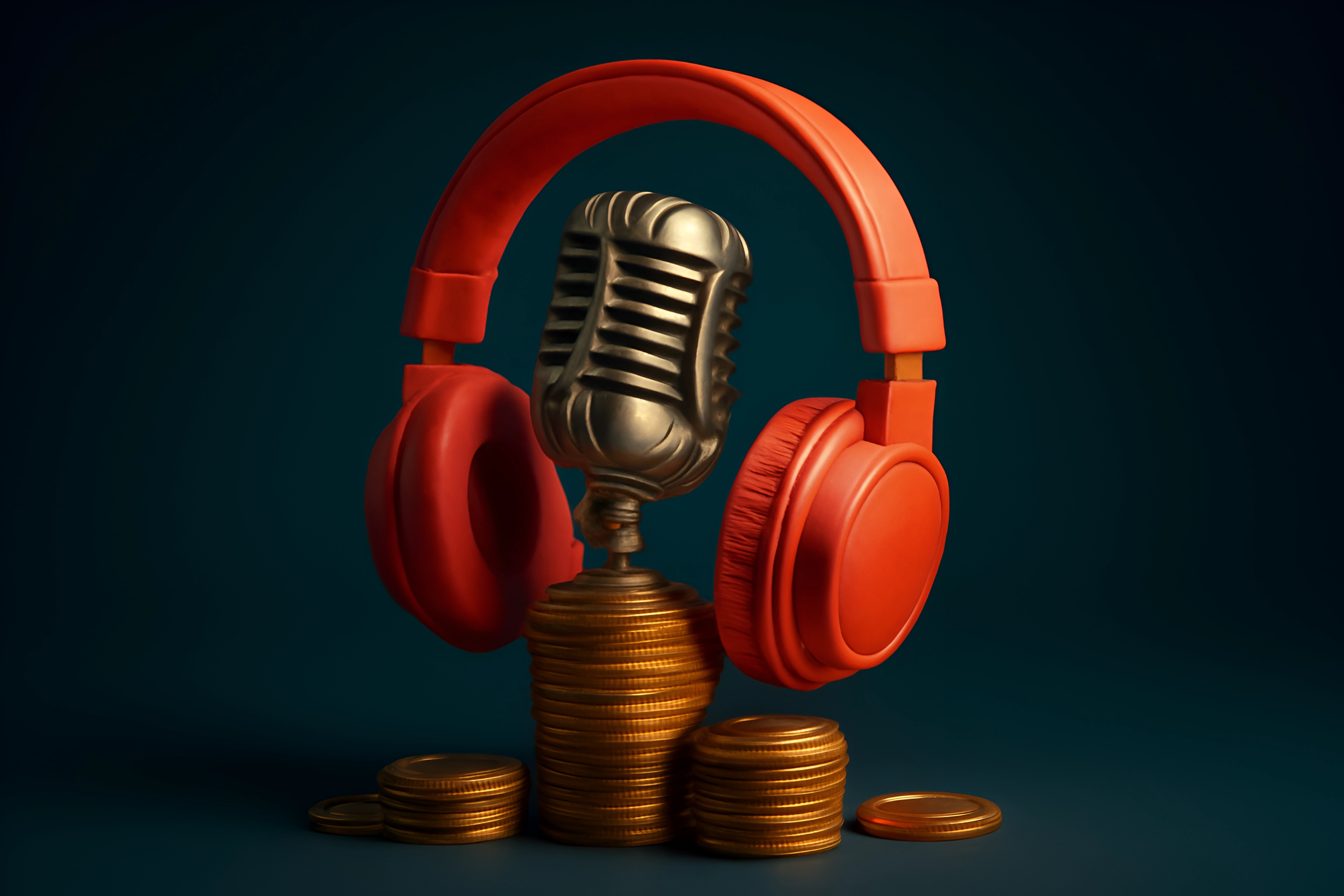
Introduction: Your Podcast is More Than a Passion—It's a Potential Paycheck
You’ve done it. You’ve poured late nights and early mornings into your microphone, editing out every awkward pause and crafting episodes you’re genuinely proud of. You’ve built a small but mighty tribe of listeners who hang on your every word, and now you’re standing at a crossroads, asking that thrilling, terrifying question: "What's next?"
For so many creators, the idea of monetization feels like a distant mountain, a peak reserved only for podcasts with millions of downloads and celebrity hosts. You might feel overwhelmed, thinking your audience is too small or that you don't have the "business" side of things figured out. It’s a paralyzing thought that keeps too many talented voices from earning what they deserve.
Let’s shatter that myth right now. This guide is your roadmap to turn that passion project into a sustainable, income-generating asset. This isn't about overnight riches; it's about building a real business, one strategic step at a time. This is your beginner guide to monetizing your first podcast, and it’s time to get paid for the value you create.
Phase 1: The Foundation - Building a Monetization-Ready Podcast
You wouldn't try to sell tickets to an empty theater, would you? The same logic applies here. Before you can earn a single dollar, you must build a foundation that listeners crave and brands want to be a part of. This initial phase is about creating undeniable value, which is the bedrock of any successful content creation venture.
Nail Your Niche and Know Your Audience
Stop trying to talk to everyone. Your most powerful monetization tool isn't your download count; it's your deep understanding of a specific audience. Who are they, really? What keeps them up at night, and what problems can your content solve for them? When you can answer this, you create a hyper-engaged community that trusts your recommendations, making you incredibly attractive to niche sponsors.
A tightly defined niche transforms your podcast from a general broadcast into a specialized resource. This focus is the core of building a personal brand that generates revenue, as it establishes you as an authority. Brands don't just pay for ears; they pay for influence within a target demographic, and a specific niche gives you exactly that.
Content is Your Currency
Consistency is king. Every single episode you publish is a deposit into a bank of trust with your audience. High-value, reliable content builds loyalty, and a loyal audience is infinitely more valuable than a large, passive one. An engaged listener who trusts you is far more likely to buy a product you recommend or support you directly than a casual listener who just stumbled upon your show.
Think of each episode as a promise kept. You're delivering the insights, entertainment, or solutions they came for, week after week. This relentless focus on quality is what separates fleeting hobbies from sustainable media brands. It’s one of the most effective content creation hacks for building a niche audience that will pay dividends down the line.
The "When to Monetize" Question
Forget the myth that you need 10,000 downloads per episode to start earning. While some monetization methods, like major sponsorships, become more accessible with larger numbers, you can start much earlier. According to experts at Riverside.fm, having around 1,000 listeners can make sponsorships more feasible, but strategies like affiliate marketing and direct audience support can begin with your first 100 loyal fans.
The key is to shift your focus from vanity metrics to engagement. How many listeners comment, share, or email you? That connection is your true currency. You can begin laying the groundwork for monetization from day one by building relationships and providing immense value, setting the stage for a profitable journey.
Phase 2: Your First Income Streams - The Easiest Podcast Monetization Strategies to Start With
It’s time to get your first win. The key to building momentum is to start with strategies that don't require a massive audience or complex negotiations. These "low-hanging fruit" methods are perfect for building your confidence and proving to yourself that, yes, you can earn money from your podcast.
Strategy #1: Affiliate Marketing
At its core, affiliate marketing is simple: you earn a commission by recommending products or services you genuinely use and trust. This is the perfect starting point because it’s built on the trust you’ve already established with your audience. You’re not just selling something; you’re sharing a solution that has worked for you. The global podcasting market is projected to hit a staggering $4.46 billion valuation this year, and affiliate sales are a growing piece of that pie.
Getting started is straightforward. You can join programs like Amazon Associates or partner directly with brands in your niche that offer affiliate programs. Once approved, you’ll receive unique links to place in your show notes or on your website. The key is authenticity; only promote products you can stand behind, as your credibility is on the line. This is one of the most powerful smart affiliate marketing strategies you can deploy early on.
An incredibly effective way to organize this is to create a dedicated page on your website. Simply make a page called yourwebsite.com/resources where you list all the tools, books, and services you recommend, complete with your affiliate links. This gives your listeners one easy place to find everything you mention and serves as a passive income stream that works for you 24/7.
Strategy #2: Direct Audience Support
Your most dedicated fans often want to support you directly. They feel a personal connection to you and your content, and they want to see you succeed. Giving them a simple, direct way to contribute is a powerful monetization strategy that relies purely on the strength of your community, not its size.
Platforms like Patreon or Buy Me a Coffee make this incredibly easy. You can set up a page in minutes, allowing listeners to make one-time "tips" or sign up for small, recurring monthly contributions. This approach is highlighted by multiple sources, including Nearstream.us, as a foundational income stream for new creators.
The secret to success here is to offer simple but valuable perks in return. You don't need to create a second full-time job for yourself. Offer things like early access to episodes, a special monthly Q&A session, bonus unaired content, or even just a heartfelt shout-out on an upcoming show. These small gestures make your supporters feel seen and appreciated, strengthening your community while funding your work.
Phase 3: Leveling Up - A Beginner's Podcast Sponsorship Guide
With a solid foundation and your first few dollars earned, you’re ready to step into the world of sponsorships. This can feel intimidating, but it’s far more accessible than you think. It’s all about positioning your podcast as a valuable marketing channel for the right brands.
Understanding Sponsorships: CPM vs. Flat Rate
You’ll often hear the term CPM, which stands for "Cost Per Mille," or cost per thousand listeners. For example, a $25 CPM means a brand pays you $25 for every 1,000 downloads an episode gets. While this is the industry standard for larger shows, it can be less advantageous for new podcasters with smaller, but highly engaged, audiences.
For your first few deals, a flat-rate sponsorship is often the better path. With a flat rate, you and the sponsor agree on a fixed price for an ad spot, regardless of download numbers. This gives you predictable income and allows you to price your ads based on the value of your niche audience, not just its size. Ads are typically placed in one of three slots: pre-roll (before the main content), mid-roll (in the middle), or post-roll (at the end).
Creating Your Media Kit
Your media kit is your podcast's professional resume. It’s a simple, one-to-two-page document that gives potential sponsors everything they need to know at a glance. A professional media kit is a crucial tool for attracting sponsors and shows that you take your podcast seriously as a business.
Your media kit should include:
- About the Show: A compelling summary of your podcast, its topic, and its tone.
- Audience Demographics: Who are your listeners? Include age, gender, interests, and any other relevant data you have.
- Listenership Stats: Your average downloads per episode. Be honest, even if the numbers are small—engagement is your selling point.
- Contact Information: Make it easy for them to reach you.
How to Find and Pitch Your First Sponsor
Don't wait for sponsors to find you—go find them. Start by making a list of brands whose products or services you already use and love. Your authentic endorsement will be far more powerful. Next, look at who is sponsoring other podcasts in your niche; these companies are already sold on the value of podcast advertising.
When you’re ready to pitch, keep your email short, professional, and focused on their benefit. Don't just lead with your numbers; lead with audience alignment. Here is a simple template you can adapt:
Subject: Partnership Inquiry: [Your Podcast Name] & [Brand Name]
Hi [Contact Name],
My name is [Your Name], and I'm the host of [Your Podcast Name], a podcast dedicated to helping [Your Target Audience] with [Your Core Topic].
I'm a longtime user of [Brand Name]'s [Specific Product] and believe it would be a perfect fit for my highly engaged audience of [Describe Your Audience]. Our listeners trust us for recommendations on [Topic Related to the Brand], and a partnership would be a natural fit.
Our podcast receives [Number] downloads per episode, and our listeners are deeply invested in [Your Niche]. You can view our media kit here: [Link to Media Kit]
Would you be open to a brief chat next week to discuss a potential sponsorship?
Best,
[Your Name]
Setting Your Rates
Determining your first ad rates can feel like guesswork, but there's a simple way to start. Industry standard CPM rates often range from $18 for a pre-roll ad to $50 for a mid-roll ad. If you have 1,000 downloads per episode, a simple CPM calculation ($25 CPM x 1 thousand listeners) would price a mid-roll ad at $25.
As a beginner, you can use this as a baseline for a flat-rate deal. Offer a package for one or multiple episodes at a fair price. For your very first sponsor, you might charge anywhere from $25 to $100 per episode, depending on your niche and audience engagement. The goal of your first deal is to get a testimonial and build a relationship, so don't be afraid to start small.
Phase 4: The Ultimate Goal - Selling Your Own Products & Services
While the previous methods are fantastic, the most profitable and sustainable way to monetize your podcast is to sell your own products or services. This puts you in complete control of your income, removes the middleman, and allows you to capture the full value of the trust you’ve built with your audience. This is the ultimate digital side hustle.
Leveraging Your Expertise
Your podcast has already done the hard work of establishing you as an authority in your niche. Your listeners tune in because they trust your voice and value your expertise. Now, it’s time to package that authority into something they can buy. This is the pinnacle of building a profitable online venture.
Ideas for Digital Products
You don't need a physical warehouse to become a product seller. Digital products are infinitely scalable and have high-profit margins. Consider creating:
- Ebooks: A deep dive into a topic you frequently discuss.
- Online Courses: A step-by-step video or audio course that solves a major problem for your audience.
- Templates & Worksheets: Simple, downloadable resources that help your listeners take action.
- Workshops: A live, paid online event where you teach a specific skill.
Ideas for Services
If creating a product feels too daunting, you can monetize your expertise directly by offering services. Your podcast acts as the perfect lead-generation tool for your service-based business. You could offer:
- Coaching: One-on-one sessions to help listeners with their specific challenges.
- Consulting: Offering your expertise to businesses or individuals in your field.
- Freelance Services: If your podcast is about writing, design, or marketing, offer those skills for hire.
The "Soft Sell" Approach
The key to promoting your own offerings is to do it in a way that adds value, rather than detracts from it. Weave your products and services into your content naturally. If a listener asks a question that your ebook answers, mention it. If an episode topic perfectly leads into your coaching services, offer a free discovery call at the end. The goal is to present your offer as the logical next step for your most engaged listeners, not as a jarring commercial break.
Conclusion: Start Earning, Not Just Broadcasting
Monetizing your podcast is a journey, not a sprint. It begins with building a strong foundation of valuable content and a loyal audience. From there, you can start with simple, accessible strategies like affiliate marketing and direct fan support to build momentum. As you grow, you can level up to securing sponsorships and, for the ultimate goal, create your own products and services that give you full control over your financial destiny.
By implementing these strategies, you transform yourself from a content creator into the CEO of your own media brand. You are no longer just broadcasting your passion; you are building an enterprise around it. The power to earn is in your hands, and the journey starts today.
Which monetization strategy are you most excited to try first? Share your plan in the comments below!
